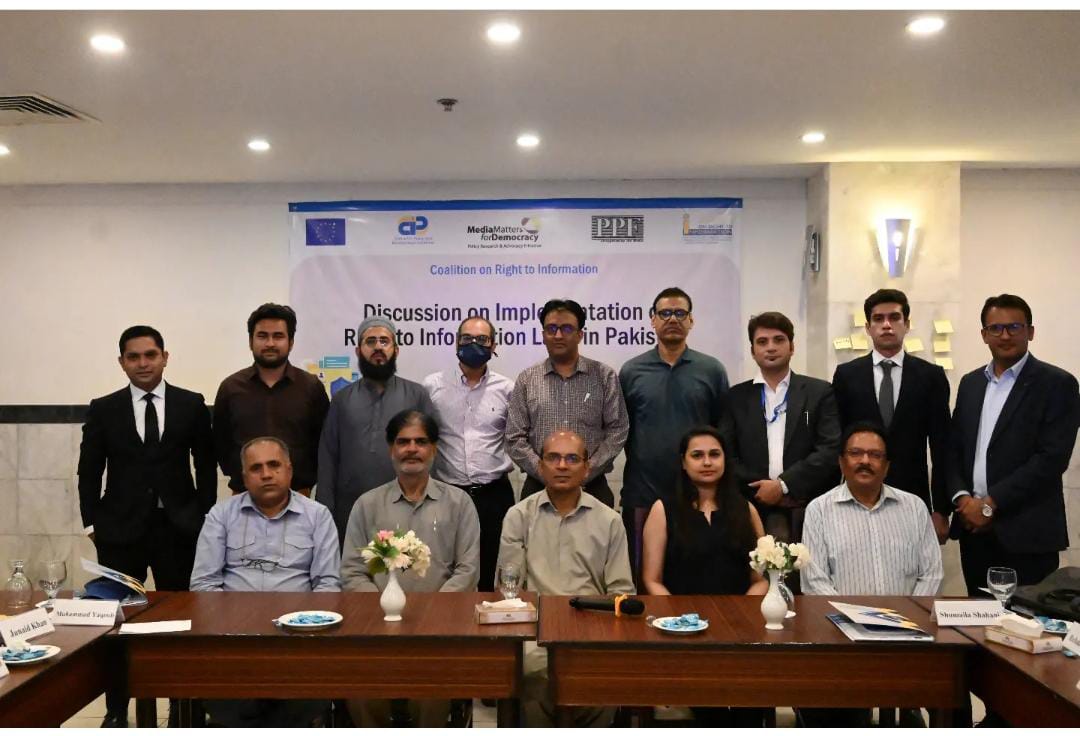CRTI Calls for Effective Implementation of Sindh RTI Law

KARACHI: The Coalition on Right to Information (CRTI) on Friday called for the effective implementation of the provincial law on Right to Information to ensure transparency, governance and achieve the Sustainable Development Goals in Sindh.
The Sindh Transparency and Right to Information Act 2016, the CRTI said, was enacted in March 2017 and, subsequently, ratified by the Governor of Sindh in April failed to meet its goals and facing hurdle to the complete implementation.
The aim of the RTI law is to ensure transparency and accountability of the public officials in matters of public importance. Under the law, citizens can seek information from provincial departments, who are bound to provide the information within 15 working days.
The implementation of the Act has remained challenging since its commencement. Due to delays in appointment of Information Commissioners, the Sindh Information Commission has remained dysfunctional since 30 May 2021.
Designation of Public Information Officer (PIOs) are also lagging behind and not designated under Section 7 of the Act. Due to dysfunctional of Sindh Information Commission consequently depriving citizens to exercise their fundamental Right of Access to Information guaranteed under Constitution of Islamic Republic of Pakistan.
The Coalition on Right to Information (CRTI) held a meeting in Karachi pertaining to the aforementioned situation in which Mr. Mukhtar Ahmed Ali, Executive Director (ED) Centre for Peace and Development Initiatives (CPDI), Dr. Raza Ali Gardezi RTI Activist, Mr. Owais Aslam from Pakistan Press Foundation (PPF), Shumaila Shahani from BoloBhi and Junaid Khan from Peace Education Foundation presented the charter of demands:
- Appoint Chief Information Commissioners and two Information Commissioners at the Sindh Information Commission in accordance with Section 12 of the Sindh Transparency and Right to Information Act, 2016.
- Take appropriate steps to draft, approve and notify the service rules for Sindh Information Commission so that it could recruit staff to carry out its functions. In the meanwhile, Sindh government should provide requisite staff to Sindh Information Commission.
- Instruct public bodies to implement Section 6 of the Sindh RTI law pertaining to proactive disclosure of information through web sites and provide necessary funds to public bodies in this regard.
- Ensure that Public Information Officers (PIOs) are designated and notified in all public bodies as required by Section 7 of the law and ensure that their contact details are easily accessible through notice-boards, websites and publications. Public Information Officers (PIOs) should also be designated by post and not by name, to ensure continuity in case of retirement, transfer or death of a PIO.
- Take steps to ensure indexation and computerization of records in all public bodies and allocate requisite funds in the budget for public bodies for this purpose.
- Allocate adequate funds for Commission so that it could effectively perform its statutory responsibilities in terms of public awareness and capacity building of PIOs.
- Take steps to digitize records and facilitate citizens’ access to record and information through online platform.





